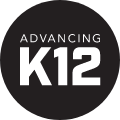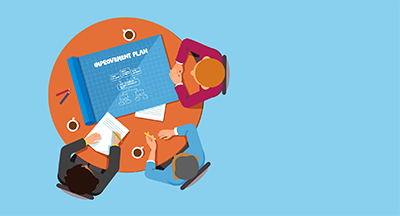
What separates “power users” from those who merely dabble in technology? It's simple: while most of us are inclined to settle for a passive, consumer mindset, power users are more likely to play the role of active partner with their peers and tech vendors.
In the world of edtech, opportunities abound for anyone who wants to take the proverbial “next step." Tech fluency and influence is not just about the individual either – in many cases, your entire district stands to benefit from your efforts. In my experience, three paths stand out as being relevant to just about any vendor or product:
1) Own the feedback loop
Most vendors have some avenue for customers to provide feedback. (If not, you probably want to start asking some questions anyway.) Some of the more common examples are enhancement requests, app feedback links, customer advisory/review panels, and user testing groups.It’s a mistake to assume that vendors (even large ones) are getting enough feedback from other people so there’s no point in adding your voice to the mix. Your individual successes, pain points, and ideas for improvement play a significant role in any user-centric development process.
Pro tip: Speak the language of developers. Your ideas are more likely to gain traction when they’re already framed in a manner that feels familiar to the people charged with guiding the vendor’s roadmap. Start by laying out your use case: what is your role, what task are you trying to accomplish, and where is there an opportunity to make the experience better?
If you are willing to put in the time to collaborate, you could very well play a central role in bringing new innovations to market. After all, a partnership is not a purchase order; it’s a commitment to working together toward continuous improvement.
2) Become a leader in the community
Nearly every product has some sort of community or following, whether it takes the form of an official, vendor-supported destination (Canvas comes to mind as providing one of the most comprehensive and engaging edtech community platforms) or a small group of like-minded users connecting via social media or self-organized user groups. A community can be the catalyst that transforms an underutilized product into something more.The rock stars, influencers, and mentors of the edtech world aren’t content staying within their small, local bubbles. By putting your name out in the public eye and playing an active role within a product’s community, you’ll have an easier time finding answers to your own questions when it’s your turn to look for guidance. The resulting exposure to thought diversity, networking opportunities, and shared templates or practices will not only make you stronger in your role; it will also trickle down to the people in your school or district who look to you for guidance.
Pro tip: Professional development is no longer something you can afford to sit back and wait for. Seize the opportunity to move from consumer to influencer by presenting at conferences, accumulating badges, and driving conversation about the products you use. We tend to get boxed into our own ways of doing things, but an influx of voices can help us look at our practices in a different light.
With just a couple hours of extra effort each week, you can boost your credentials, improve the quality of service you provide for your internal stakeholders, and become a trusted source of information for peers and vendors alike.
3) Hold your partners accountable
Partnership is a two-way street. The edtech companies you work with are likely leaning heavily on you for feedback, success stories, testimonials, and references, so it’s fair to expect them to meet the commitments they have made to you.The best way to keep those communication lines open is to find at least one single point of contact you can rely on for quick answers and follow up. If you feel like your school or district is not getting the service it signed up for, don’t assume there’s nothing you can do about it. Voice your concerns and don’t let yourself be brushed off. As a paying customer, you have leverage, but as a partner, it’s important to be selective about when you use it.
Pro tip: Develop a relationship with the sales representative assigned to your account. He or she will be the one person in the vendor’s organization with the most interest in making sure you are happy with the partnership. One strategy that I’ve seen pulled off with great success is for both parties to agree to a recurring meeting every six months or so, in which you can share three or four goals you’re working toward and any wish list items that have come up. Your account manager should be close enough to the action to help identify the best and newest resources, products, or training opportunities for your situation.
It’s a win-win; your life is made easier thanks to the “inside information” you now have access to and your sales rep can leave the meeting with the peace of mind that comes with knowing your partnership remains strong.
If you catch yourself thinking about edtech as a consumer/provider endeavor, consider stepping out on a limb and getting more involved. The leaders I’ve worked with who view their edtech partnerships as collaborative ventures are, without fail, happier with their technology, more adept at using it to achieve their goals, and better prepared to face any changes the future might bring.
If your vendors aren’t willing to hold up their end of the bargain, at least you will have a better idea of what to look for the next time you’re in the market for something better.
WHAT'S NEXT FOR YOUR EDTECH? The right combo of tools & support retains staff and serves students better. We'd love to help. Visit skyward.com/get-started to learn more.

|
Advancing K12 Staff Edtech Thought Leaders |




